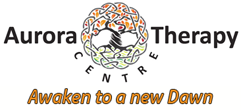Gabor mate theory on addiction
Gabor Maté is a renowned Canadian physician and author who has developed a theory on addiction based on his clinical experience and research. According to Maté, addiction is not just a physical or psychological problem, but a result of a person’s emotional and social environment.
Maté’s theory on addiction emphasizes the importance of understanding the underlying emotional pain and trauma that can lead to addictive behaviors. He suggests that addiction is often a coping mechanism that individuals use to deal with emotional pain or trauma that they have experienced in their lives. In other words, addiction is an attempt to self-soothe and manage overwhelming emotions.
Maté also highlights the impact of early childhood experiences on the development of addiction. He suggests that individuals who experience trauma or neglect in their early years may be more likely to develop addictive behaviors later in life as a way to cope with their unresolved emotional pain.
Maté’s theory on addiction also emphasizes the importance of connection and community in recovery. He suggests that individuals who struggle with addiction often feel disconnected from others, and that recovery requires building supportive relationships and finding a sense of purpose and meaning in life.
Overall, Maté’s theory on addiction suggests that addiction is a complex issue that requires a holistic approach that addresses the underlying emotional, social, and environmental factors that contribute to addictive behaviors. His work has had a significant impact on the addiction treatment field and has helped to shift the focus from simply treating the physical symptoms of addiction to addressing the root causes of the problem.

